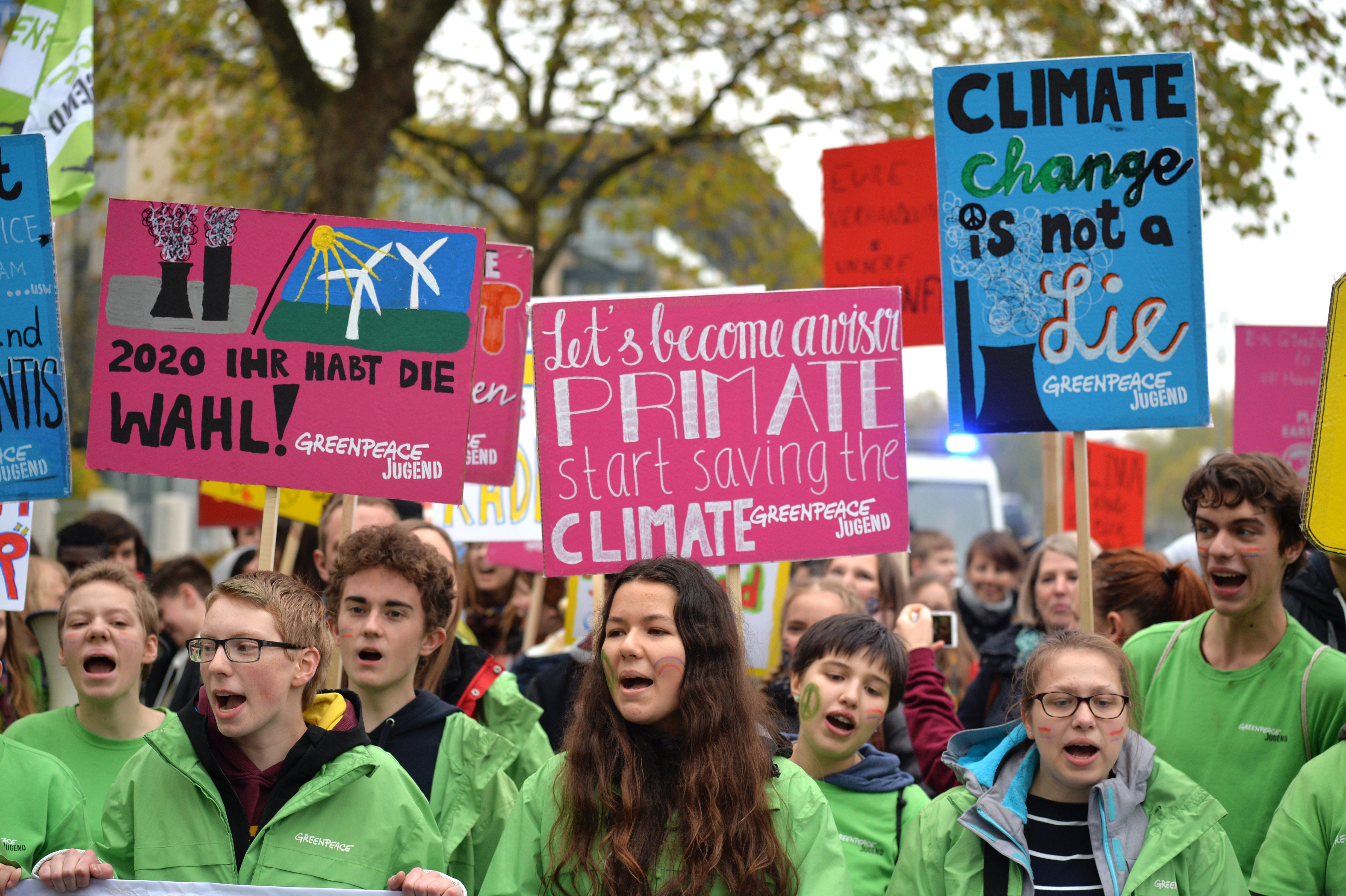Cities Are Scolding Countries at UN Climate Conference to Cut Emissions

Credit to Author: Stephen Leahy| Date: Thu, 09 Nov 2017 17:35:51 +0000
An alliance of major cities including New York, Toronto, and London challenged nation states attending the United Nations climate talks in Bonn, Germany this week “to kick dirty carbon to the curb” and immediately “commit and work straightaway towards carbon neutrality, 100 percent renewable energy, zero-waste and zero-carbon.”
The Carbon Neutral Cities Alliance is a new collaboration of 20 international cities (other members include Washington DC, San Francisco, Oslo, and Sydney). All are striving for carbon neutrality and cutting greenhouse gas emissions by at least 80 percent by 2050.
“Dirty fuels and climate disruption are killing and displacing millions of citizens around the world,” the Alliance stated in a strongly-worded letter sent to every country’s delegation at climate talks, known as COP 23.
“Cities are on the frontline of climate impacts. We see the urgency of climate action and need nation-states to be as committed as we are,” Johanna Partin, the director of the Alliance and former advisor to the mayor of San Francisco, told Motherboard by phone.
Read More: The US Is the Last Country to Remain Outside the Paris Climate Agreement
There’s widespread agreement that countries are not doing enough to keep the rise in global average temperature below 2℃. Last week, UN Environment reported that promised commitments by countries to reduce emissions under the Paris Climate Agreement are only one-third of what’s needed.
It gets worse. According to the Climate Action Tracker—an independent, science-based assessment group—only one country, Morocco, is doing its bit to keep global temperatures to a safer 1.5℃, the Paris Agreement’s aspirational target.
“One year after the Paris Agreement entered into force, we still find ourselves in a situation where we are not doing nearly enough to save hundreds of millions of people from a miserable future,” said Erik Solheim, head of UN Environment, in a statement. The organization called on cities, local governments, and businesses to step up their reduction efforts to help close the enormous gap between what countries will do, and what the science says is needed.
“I don’t understand why countries aren’t doing more. It must be push back from vested interests like fossil fuel industry,” Partin told Motherboard. “We’ve proven that cutting emissions is good for the economies of cities.” San Francisco has enjoyed a 78 percent economic gain while reducing greenhouse gas emissions 28 percent since 1990, she said. All of the 20 cities in the Alliance have seen similar results.
Some of the things these cities have done are “no brainers,” such as switching streetlights and traffic signals to LEDs to save energy and cut emissions, said Partin. Los Angeles is saving millions of dollars a year doing this. “There’s still a ton of cities in the US that haven’t done it. It doesn’t make any sense,” she said.
When it comes to LED lights, India is far ahead of the US. That country will have replaced 770 million street and household lights by 2019, and gained an expected annual saving of $7 billion in energy cost and a 80 million ton reduction in CO2.
It’s a tired myth that there is a conflict between environmental protection and economic growth, Partin said.
Cities could do a lot more with national support, and it will be tough to reach carbon neutrality without it. Norway has heavy taxes on fossil fuel vehicles and no tax on electric vehicles. As a result, one in three new cars is electric or a hybrid, she said.
Nothing like this is going to happen with a Trump administration in the White House. They’re having a big negative impact on reaching climate targets and making cities’ job getting to carbon neutrality that much harder, she said.
“The US is also losing out economically by not embracing a clean energy future. China is taking over.”
Get six of our favorite Motherboard stories every day by signing up for our newsletter.